Nobuo Uematsu Interview: Anime Boston Panel
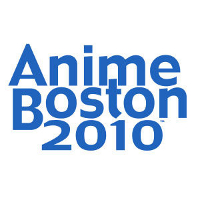 In April 2010, Anime Boston celebrated Japanese culture with a three day event. One of the major highlights was the special attendance of Final Fantasy series composer Nobuo Uematsu, who recently turned 51. During the event, Uematsu took part in a 70 minute interview session with a sizeable audience of fans and media. Our Tommy and Don were specially invited to the session and below are the responses.
In April 2010, Anime Boston celebrated Japanese culture with a three day event. One of the major highlights was the special attendance of Final Fantasy series composer Nobuo Uematsu, who recently turned 51. During the event, Uematsu took part in a 70 minute interview session with a sizeable audience of fans and media. Our Tommy and Don were specially invited to the session and below are the responses.
Uematsu’s responses are transcribed below and rearranged into a logical order for easy reading. In this very general interview, he offers many insights into his life, background, works, and philosophy that he has never offered before. It is a wonderful way to find out more about the composer who has endeared to so many Final Fantasy gamers over the last 23 years.
Interview Credits
Interview Subject: Nobuo Uematsu
Interviewer: Anime Boston Attendees
Editor: Chris Greening
Translation & Localisation: Anime Boston Staff
Coordination: Shota Nakama, Hiroki Ogawa, Jamison Chew
Support: Tommy Ciulla, Don Kotowski
Interview Content
Question: How have you found being at Boston so far, Nobuo Uematsu?
Answer: I’ve really wanted to look around, but unfortunately I’ve had a cold and have been in bed all week. As you know, though, the Berklee College of Music is down the street. I always really wanted to go there, but it didn’t work out — after all, I didn’t have any money, I had limited knowledge of English, and I wasn’t too confident in my music either. But now I am in Boston, it’s really exciting to know that the school of my dreams is right there!
Question: When you first started, what was your overriding career goal other than, of course, to make money?
Answer: Well, first off, people don’t become musicians because they want to make money! One of the things that really strikes me about music is that it can be appreciated by all. Words can become a wall between people of different languages, which is why we need a translator to communicate today. But through music, people from all over the world can like the same song and this brings some peace between people. I’ve believed this since when I was a child and I still believe it now. I’m really glad to be able to have a career where I can communicate in such a way.
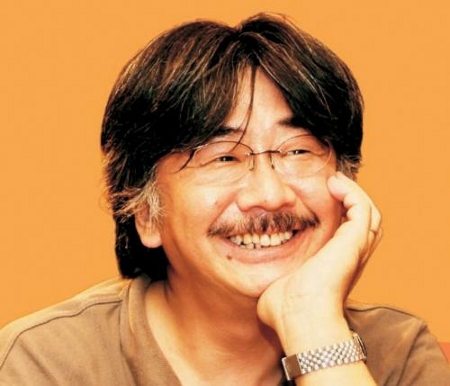
Question: I wondered if there were any other composers, either contemporary or past, that you were particularly admired or were inspired by?
Answer: So many! There are a lot of musicians who have inspired me from different backgrounds. Some classical, some rock… I used to listen to Elton John and The Beatles a lot while I was younger. But if I had to choose just one inspiration, it would be Tchaikovsky.
Question: What influence did your own teachers have on your career and what advice would you give to those of us coming up through the ranks as music educators?
Answer: I haven’t been taught by many teachers, per se. A lot of what I have done is very much on my own through independent learning. However, as a teacher to you guys, my advice would be to really treasure your individuality. I receive a lot of demo tapes and, while a lot of them are really good, they all sound the same. What you guys have to do is find a way to express yourself in your music and people will really catch on to that.
Question: If you had joined Berklee as you dreamed of, do you think you would be in the place you are now?
Answer: Interesting question. I definitely don’t think I’d be the same person as I am now if I went to Berklee and studied music properly. In many ways, I fear I would feel really tied down by the rules and theory of music if I received proper classical training. Of course, I am still really envious of those who are able to really learn and study music properly, because that was something I was never really able to experience. But in a lot of ways, I am also really grateful, as my music is unique and part of that is because I never had that education.
Thankfully, I have been able to work with talented individuals with extensive training, such as Shiro Hamaguchi who orchestrated the music from Final Fantasy VII to Final Fantasy XI. He actually came to Berklee to study jazz, since he realized that studies of just classical composition are not enough. I’d definitely aspire to expand my musical horizons in such a way too.
Question: Given your emphasis on expressing individuality, how do you find a niche and persona yourself?
Answer: It’s really not that difficult if you go for what you want. Right now, you guys are listening to me, I’m here talking, and people are outside playing. Each one of us is making choices and doing things according to what we have chosen to do. Don’t do the things that people tell you to do and don’t do the things that you think are safe. Don’t be scared to do things that people might point at you and laugh for. Just do what you want to do. This applies to everything — from food to clothes to music — and, by doing that, you will become a unique individual.
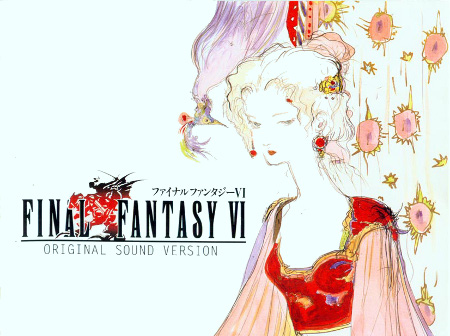
Question: In addition, how do you make sure your own music remains so unique and fresh with each game you compose?
Answer: I don’t often enjoy the music that I hear on mainstream radio and television stations. Most music sounds the same and I become really fed up by this. As a result, I am constantly looking for new sounds, styles, and melodies to inspire me. Often I listen to music from different countries and lesser-known sources — right now, for instance, I’m listening to music from Uzbekistan! So when I make music, I try to make compositions that I won’t get tired of listening to.
Question: What advice would you give to a new composing wanting to break into composing in general, and more specifically video games, based on your own experiences in the Japanese game music industry?
Answer: Usually in the mainstream music industry, it’s necessary to consider what’s popular and what’s going to become a hit when composing a song. However, that’s not really the case for the video game industry. What composers have to work on is individuality, as I’ve already emphasised — you have to make something that nobody else has made before.
Question: On that note, could you tell us about how you entered the industry yourself?
Answer: As you all know, I started working in the games industry at Square. Though it’s a giant corporation now, when I started, it was really small. I was introduced to the company through a friend and that was really advantageous. I started as a part-timer and then eventually became a full-time worker at the company.
Question: How do you get into the suitable composing mode while working?
Answer: For me, like everyone else, there are times when I’m just sitting there and desperately trying to motivate myself that “I’ve got to do this”. But if I force myself too much, it’s just not going to happen. So I might tell myself I’m done for the day, turn off all the lights, start taking off my pants(!), and then I realize… I’m not satisfied with that. I put the pants back on, turn on those lights, go back to my computer, and get right back to work. Really, it’s necessary for everyone to decide what is the best way to decide how to motivate themselves.
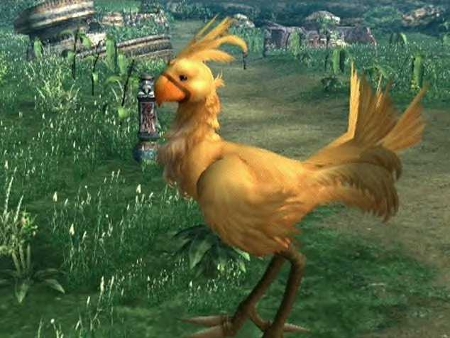
Question: When you compose music for all the games you do, where do you normally draw your inspiration from?
Answer: There isn’t really much of a general inspiration usually, except for maybe my deadline. However, there are lot of individual inspirations lying behind each track.
There is a funny story about the “Prelude”, for instance, which has featured in every Final Fantasy game I have composed. When we completed the very first Final Fantasy, the director suddenly came running into my room and said “Uematsu, really, you’ve got to write me one more piece for this game”. I reluctantly agreed and, in about five minutes, just threw this arpeggio together to represent the game. It’s really embarrassing to know something I composed so quickly has gone on to become a trademark of the series!
Question: More generally, how long does it take to compose a theme? If you didn’t have a deadline, would you make longer ones?
Answer: Really it depends on the piece. I can’t really say ‘one piece takes this long’ and whatnot, since they vary a lot in terms of length or complexity. The deadline itself isn’t usually a determining factor in how developed a make a piece either. Really, it’ll take as long as necessary for me to create an appropriate piece.
Question: Out of all the Final Fantasy games you have composed, what was your favourite to compose? And which was your favourite to play?
Answer: I really have a lot of memories of all of them. However, if I had to pick one, it would be Final Fantasy VI, both to compose and play. There were about 30 of us that made the game together and there was an amazing amount of teamwork throughout — everyone helped each other. As a result, this game is especially important to me.
Question: How do you go about portraying specific characters? Out of all the character themes you have written, which would be your favourite?
Answer: With respect to portraying specific scenes or characters, the rest of the design is very important. When creating character themes, I usually first look at the script or look at any artwork if available. I think about what sort of music should be used when a character is speaking and whether any personality traits come out to me when reading the script. As for my favourite character theme, it would definitely be the theme of Aeris from Final Fantasy VII.
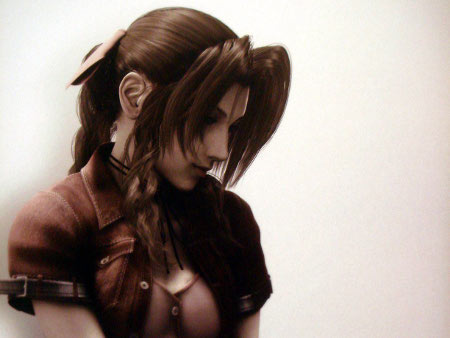
Question: On the topic of Final Fantasy music, was the introduction of vocal music to the series onFinal Fantasy VIII a big challenge to you in the way you compose your music?
Answer: Actually, I have been writing vocal themes since I was elementary school. I just love it. Some people assume that I only wrote instrumental songs before Final Fantasy VIII and that’s not necessarily true. It just wasn’t possible to include songs in earlier games for technological reasons. When I now write songs, it’s not really a challenge. It’s like going back to being the little boy I used to be!
Question: How did you approach Final Fantasy IX‘s “Melodies of Life” compared to Final Fantasy VIII‘s “Eyes on Me”.
Answer: For “Melodies of Life”, the director came to me and said “I want to make a song that would live on and be remembered, even if I were to die”. I carefully considered this concept and began thinking it in relation to myself as well. For example, “What type of song would I need to make for my wife to remember me by?”.
Question: For Final Fantasy X, what sort of emotions did you have when composing the music for Yuna and Tidus’ relationship? In particular, could you elaborate on your experiences with “To Zanarkand”.
Answer: That was a really sad story, wasn’t it? I still think about it occasionally even now and get a little teary eyed. I composed music mainly to complement this sad story, such as “Suteki da ne”.
Actually, “To Zanarkand” was not originally composed for the game and rather I was commissioned to create the source composition for a classical flute ensemble. In the end, I decided to put the music away as it was too sad for the intended purpose. However, I was suddenly given a demand from theFinal Fantasy X development team to immediately create something for the opening scene. I decided to pull out the music and rearranged it for solo piano. When I saw it in conjunction with the scene, it was just perfect. I love hearing this track interpreted with full orchestra, but I often need to pull out a tissue to avoid the tears coming on!
Question: While you have principally worked on video games, I know that you have also worked in other media too, such as with the animated film Final Fantasy VII: Advent Children. Based on your experiences, how does composing for such titles compare?
Answer: One of the major differences is timings. Movies and animes have a set amount of time which music must underscore. For games, it’s not usually like that, except in the case of cinematic sequences and whatnot. Most game music, such as town themes, have to loop rather than come to a defined conclusion. A further difference is that dialogue is often more prominent in animes and movies, so much takes more of a background role; it’s important to make sure that a composition isn’t distracting or interruptive from the focus. In a game, there is less dialogue and background music is often more audible; thus, a lot of the expression of what is going on comes from the music.

Question: How difficult was it for you to decide to leave Square Enix? Is there any unfinished business there?
Answer: Well, the company is now rather far from my house, so it actually wasn’t that hard! I decided to leave Square Enix after the company’s headquarters moved.
Question: Is there any truth to the rumour that Final Fantasy XIV will be your last Final Fantasy work?
Answer: First off, let’s make this clear: No! I am not going anywhere as a game composer and that is a false rumour. As for whether I will continue to work on the actual Final Fantasy series, that’s not up to me decide. If Square Enix keeps giving me work on the series, of course I will keep on doing it.
Question: I’d be interested to know how your experiences composing for Mistwalker differed from that of Square Enix?
Answer: At Square, I received a deadline every month, so I was kept on my toes. These days I maintain a busy schedule nonetheless. As for working with Hironobu Sakaguchi, we used to be right next to each other when I composed at Square. These days we’re a little further apart, but still communicate through email and meet sometimes. Otherwise the experiences are pretty much the same.
Question: It must have been interesting experience the Video Game Orchestra’s interpretations of your Final Fantasy pieces yesterday. What was it like revisiting these pieces after a long time away from composing them?
Answer: I actually don’t think it’s such a long time for me, since I tend to play them regularly in guest performances at various concerts. However, it’s amazing to think that Final Fantasy came out over 20 years ago and yet even now I still play the themes. But back then, I was in my 30s. Wow, I was young!
Question: Do you have any plans to perform in the East Coast in future?
Answer: Yeah, I would love to come to do a concert with Distant Worlds in Boston or New York. I’m not the one who actually decides that, though. A woman called Annie actually does; she’s from Chicago, so they get lots of my concerts!! I’ll definitely let her know that I’d like to come to the East Coast more in future.
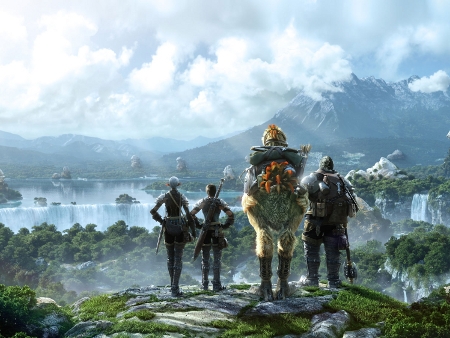
Question: An off-the-wall question: If you were wandering the streets of Boston and you stumbled into a random encounter and your comrades had fallen, what would you do to save them? What would your limit break be?
Answer: Drink as much beer as I could! Of course that would work!
Question: When can we expect from your future projects? For example, when will a fourth Black Mages album appear? Are you composing for The Last Story?
Answer: You guys are asking me difficult questions! For The Black Mages, you might be able to expect something around next spring. I’m not able to talk about The Last Story.
Question: Do you think you’ve accomplished your greatest musical achievement and, if not, what do you think that would be?
Answer: Well, I won’t know until I try more. When I finish a piece, I think “Yeah, this is a good song”, but really I’m not the only one who decides whether it is. You guys decide that too and might have an opinion on my best piece overall. I still have a lot in me and I really want to see if I can compose something even better in future.
Question: Any final thoughts from you, Uematsu-san?
Answer: Thank you! My dad is 83 years old now and he fought against this country in the war. The thought that I am here in front of you all now at a time of peace and happiness — given my heritage — is amazing. I’m so glad we can be here right now and share these moments together. Thank you very, very much.
Thank you to Tommy Ciulla and Don Kotowski for their help with Anime Boston coverage. Many thanks to Shota Nakama, Hiroki Ogawa, and Jamison Chew for organising our involvement in this interview and for allowing us to republish the contents. Thank you for everyone who asked such interesting questions and the translator for her clear interpretations. Finally, thank you to Nobuo Uematsu for his inspiring and humorous responses.
Posted on April 30, 2010 by Chris Greening. Last modified on March 2, 2014.













